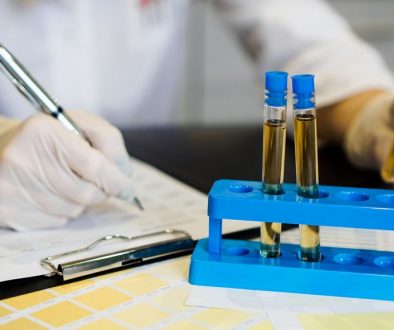Vitamin B12 deficiency has become increasingly common, even among people eating seemingly balanced diets. This crucial nutrient supports energy production, nerve function, DNA synthesis, red blood cell formation, and detoxification pathways. So why are so many people running low despite living in an age of abundance?
Let’s explore the three primary drivers behind today’s B12 crisis, and what you can do to restore optimal levels.
1. Depleted Soil Microbes: The Silent Collapse of Nutrient Density
B12 isn’t produced by plants or animals, it’s made by soil and gut microbes. Historically, humans obtained B12 naturally from soil-rich produce, fermented foods, and pasture-raised meats nourished by microbially active soils.
But modern industrial agriculture has disrupted this system. Decades of chemical fertilizers, pesticides, and monocropping have drastically reduced soil microbial diversity. Crops now grow in biologically “quiet” soil, meaning they lack the microorganisms that help synthesize and recycle key nutrients, including cobalt, the mineral backbone of vitamin B12.
Even grass-fed animals often graze on depleted land, reducing the B12 content in their meat and milk. In essence, the modern food chain has been sterilized at its source.
2. Impaired Absorption: How Digestive Imbalance Blocks B12 Uptake
Even if you consume enough B12, proper digestion is essential for your body to absorb it. Absorption depends on multiple steps, and many people’s systems are struggling at each stage.
Low stomach acid is one of the most common barriers. Adequate hydrochloric acid is needed to release B12 from food proteins, but chronic stress, aging, antacid use, and poor eating habits all suppress stomach acid production. Without this acidic “unlocking,” B12 can’t bind to intrinsic factor, a specialized carrier protein made in the stomach, and therefore can’t be absorbed in the small intestine.
From there, B12 absorption relies on the health of the small intestine itself. Conditions such as celiac disease, Crohn’s, dysbiosis, or SIBO (small intestinal bacterial overgrowth) can impair the delicate lining where B12 uptake occurs.
In other words: if your gut isn’t functioning optimally, even the best diet won’t meet your B12 needs.
3. Environmental and Lifestyle Stressors: A Modern Drain on B12
Our demand for B12 has quietly increased in the face of modern stressors. The body uses B12 for detoxification, methylation (a key biochemical process for energy, hormone balance, and DNA repair), and to manage oxidative stress.
Environmental toxins, heavy metals, medications, and chronic psychological stress all accelerate B12 depletion. Alcohol consumption, smoking, and certain pharmaceuticals, especially metformin, acid blockers, and oral contraceptives, further impair absorption or increase utilization.
Combined with the factors above, it’s no wonder so many people are running low on this vital nutrient.
Supporting Healthy B12 Levels Naturally
The good news: B12 deficiency is correctable once the root causes are addressed.
- Choose regeneratively grown or organic foods that come from healthy, microbe-rich soils.
- Support stomach acid and digestion with mindful eating, adequate protein, and digestive bitters or HCl support (if indicated by testing).
- Heal the gut lining and balance the microbiome to restore absorption capacity.
- Assess your stress and toxic load, and support detoxification pathways with key nutrients like B12, folate, and magnesium.
- Consider targeted oral, intramuscular or intravenous supplementation with methylcobalamin, hydroxycobalamin or adenosylcobalamin under practitioner guidance.
The Takeaway
Vitamin B12 deficiency isn’t just about what we eat, it’s about the health of our soils, our digestion, and our modern lifestyle. By addressing the deeper causes, we can rebuild the foundations of nutrient resilience and vitality.



